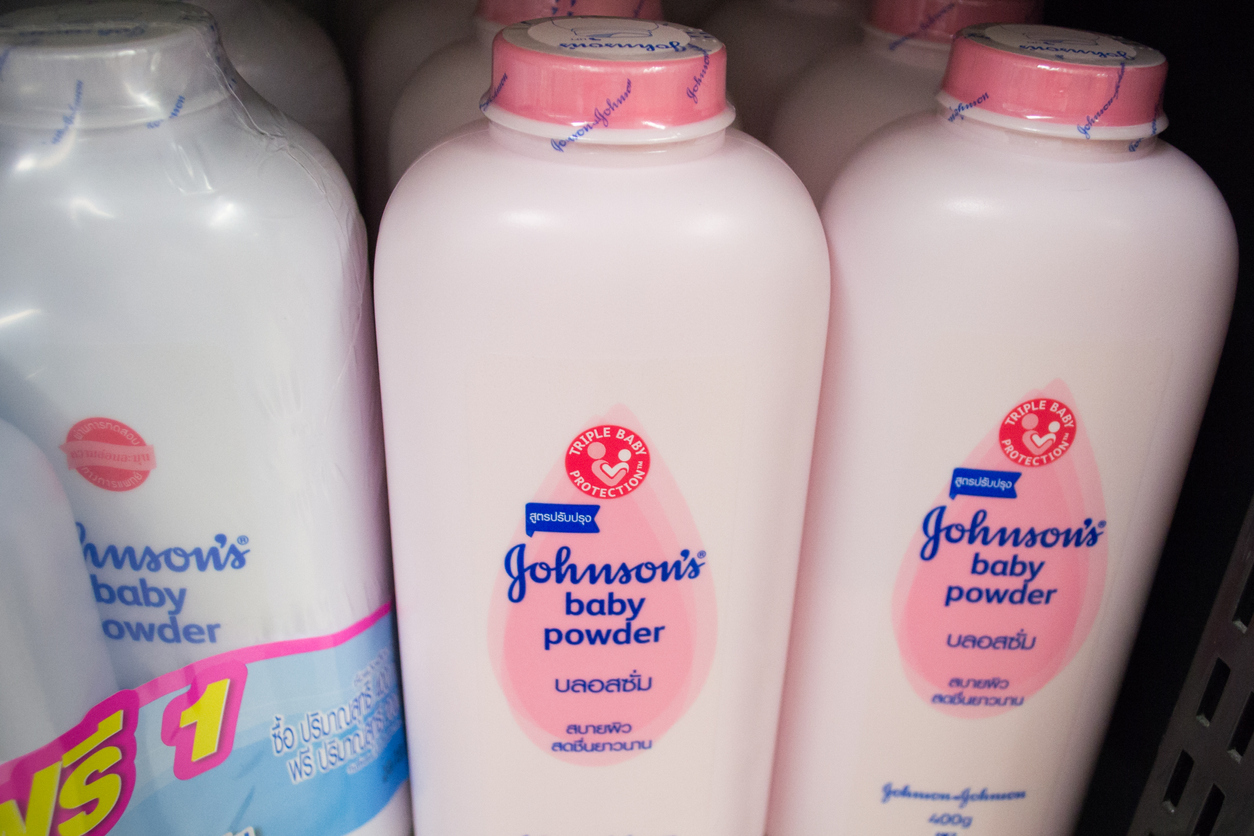DOJ Bankruptcy Watchdog Files Motion to End J&J Talc Bankruptcy Plan
Editors carefully fact-check all Consumer Notice, LLC content for accuracy and quality.
Consumer Notice, LLC has a stringent fact-checking process. It starts with our strict sourcing guidelines.
We only gather information from credible sources. This includes peer-reviewed medical journals, reputable media outlets, government reports, court records and interviews with qualified experts.

The Department of Justice is once again looking to bring an end to a controversial Johnson & Johnson bankruptcy plan.
The United States Trustee Program, which serves as the bankruptcy watchdog arm of the DOJ, filed a motion on Monday to dismiss the bankruptcy of Red River Talc, a J&J subsidiary that was created to handle its parent company’s talcum powder lawsuits.
Red River Talc had filed for Chapter 11 as part of a Texas two-step bankruptcy, where a subsidiary is formed to take on the primary company’s liabilities and then file for bankruptcy in its place.
J&J has employed the Texas two-step in an effort to resolve the tens of thousands of ovarian cancer lawsuits against the company that claim it failed to warn of adverse health effects tied to its baby powder products.
The bankruptcy is a necessary step to complete an $8 billion settlement, which is expected to resolve more than 99% of the talc litigation against the company.
But the DOJ is looking to derail the completion of that settlement due to J&J’s use of the Texas two-step.
“[Johnson & Johnson] seeks to use the bankruptcy process to immunize itself from billions of dollars of personal injury liability without actually subjecting itself to bankruptcy,” U.S. Trustee Kevin Epstein said in the motion. “… J&J has followed a strategy of creating a new subsidiary, assigning that subsidiary billions of dollars of tort liabilities but few productive assets, and then causing that subsidiary to file for chapter 11 protection.”
Judge Christopher Lopez, who is overseeing Red River Talc’s bankruptcy case in Texas court, will have the ultimate say over the fate of J&J’s settlement attempt.
DOJ Continues Attempts to End J&J Talc Bankruptcy Plan
The DOJ has fought against J&J’s settlement plan since Red River Talc filed for Chapter 11 last month, but so far has not had success in halting the bankruptcy.
It first tried to get the case sent to a New Jersey court that had struck down J&J’s previous attempts to complete talc settlements through this strategy. In those cases, J&J had used a similar subsidiary called LTL Management in an effort to achieve a Texas two-step.
According to Reuters, Judge Michael Kaplan, who had overseen the company’s two previous attempts, shot down J&J’s last try over the determination that LTL Management didn’t demonstrate the level of financial distress necessary for a Chapter 11 filing.
The DOJ had hoped that getting Red River Talc’s bankruptcy case in front of Kaplan could create a similar result, but Judge Lopez opted to allow the case to remain in Texas after determining that it was different enough from those past attempts by J&J to stand on its own.
One big difference that J&J has pointed to is the overwhelming support from plaintiffs for the current settlement. The company says that 83% of claimants back the $8 billion settlement, which J&J upped by $1.75 billion from its initial offer in an effort to bolster plaintiff support.
Thousands of Pending Ovarian Cancer Lawsuits Await Result of Bankruptcy
The outcome of numerous ovarian cancer lawsuits hinges on the completion of Red River Talc’s bankruptcy.
As of this month, more than 58,000 talcum powder lawsuits remain pending in multidistrict litigation. According to Law.com, Judge Lopez ordered an automatic stay on J&J talc litigation in September, which halts it for the time being, as the bankruptcy case proceeds.
If approved, the settlement will resolve what has been a yearslong back-and-forth between J&J and plaintiffs who blame ovarian cancer on the company’s baby powder. The settlement is set to be paid out over 25 years.
J&J also faces ongoing litigation from plaintiffs who say they developed mesothelioma from using the company’s talc products. Mesothelioma cases are not covered by this settlement, but plaintiffs have fared well in court over those claims recently.
Just in August, a South Carolina man with mesothelioma was awarded $63.4 million by a jury after he used J&J baby powder in place of deodorant for decades.